Who Can Save Mergui?
The Mergui Archipelago approaches a crossroads. One path profits the opportunistic, the real estate speculators, and profligatious construction; the other leads the islands through planned, sustainable, mindful, and purposeful development. Steering the beautiful cluster of islands is the government, private companies and organizations, and the people of Myanmar. My hope is that they steer with their hearts and the hard-won wisdom of other natural paradises.
I met with the CEO of Boulder Bay Eco Resort and Moby Dick Tours, Bjorn T. Burchard, to discuss the future of Mergui and potential for sustainable development in the archipelago. “The place is originally rainforest, you know, what Mother Earth created. I lived in Thailand in the late 70’s. I’ve seen how beautiful destinations go downhill; it’s building whatever people like without thinking about sustainability,” he said. Bjorn has witnessed the squandering of natural beauty and resources in the name of development, and with the Mergui Archipelago he is an outspoken advocate of slow, methodical, and thoughtful development.
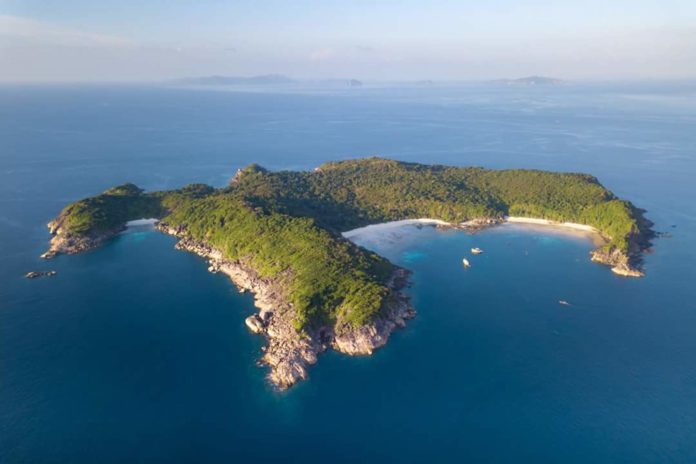
No matter the country, region, or city, the public sector can only do so much. Resources are limited, concern of a population is ever-shifting, and bureaucratic processes can tie up progress. Bjorn has made great efforts to set standards where regulations are lacking, make a positive impact on the environment where public utilities and programs are missing, and design ecologically sensitive experiences for visitors to the region.
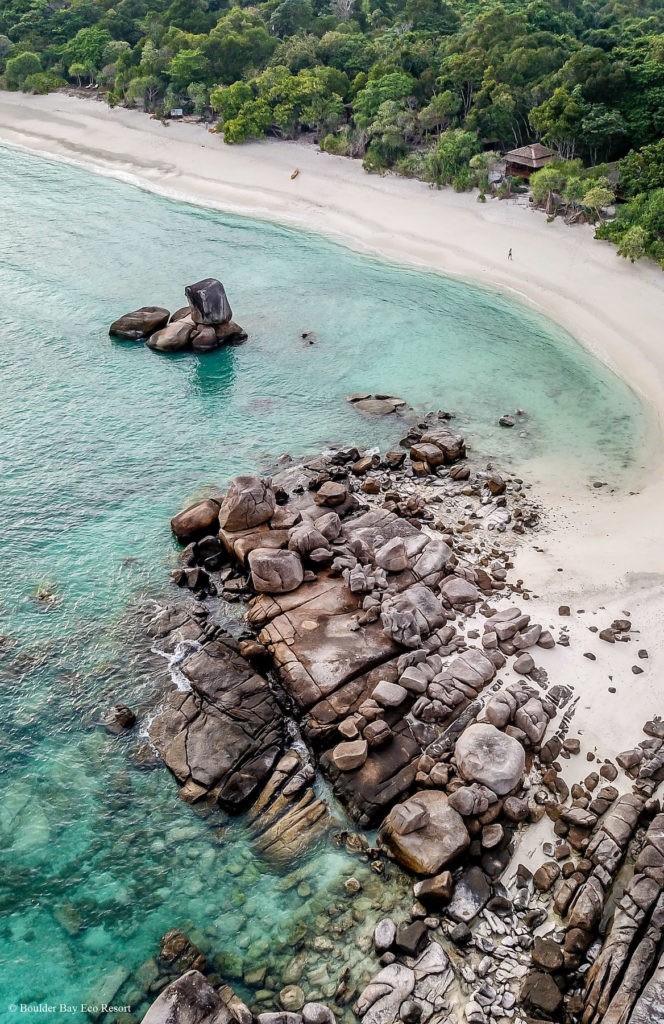
Boulder Island lies on the Western edge of the Tanintharyi coast. Though it has no indigenous settlement of its own, the Moken, also known as Sea Gypsies, have made the islands of the Mergui Archipelago to the East of Boulder Island their own for hundreds of years. The island is rich in natural beauty, but all that could change if the government permits unregulated development of the archipelago. Without informed and concerned leadership, Boulder Island and the other islands of Mergui could face a future that looks a little less like paradise and looks a little more like the spoiled Chumphon Archipelago of Thailand–a tourist hotspot with fading coral reefs and a pollution problem that needs to be curbed
Mergui Archipelago consists of several islands the size of Phuket. The sheer splendor of the location paired with availability of land presents an enormous opportunity for Myanmar’s tourism sector. If not managed carefully, Mergui could end up like island destinations in the Philippines and Thailand, where locations shut down operations to give nature a chance to recover. We must ask ourselves:
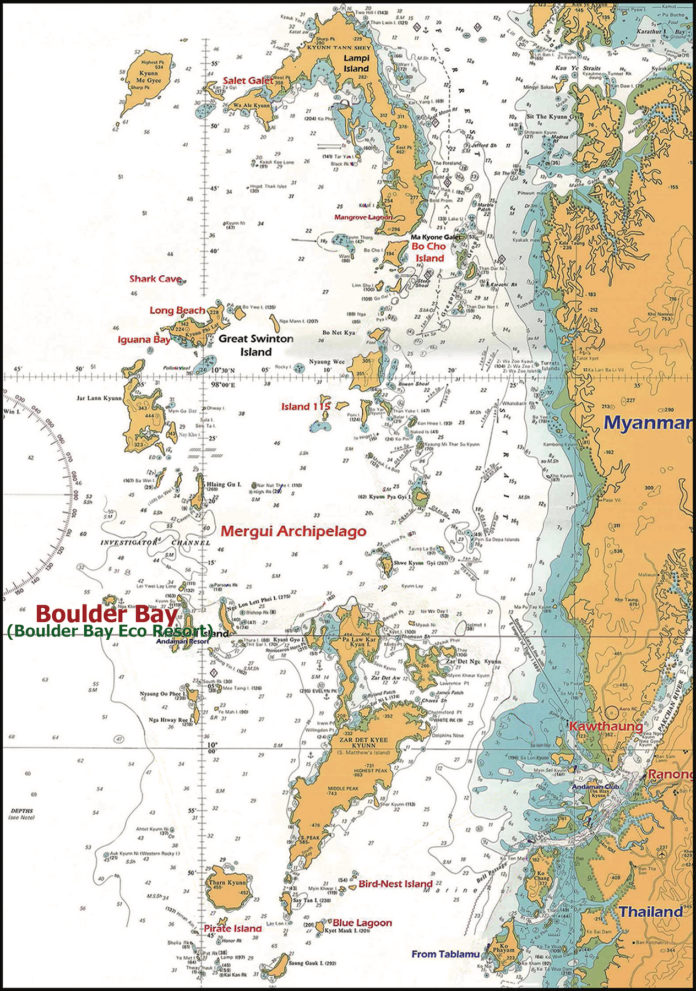
Will Myanmar make the same mistakes?
Will Myanmar’s coral reefs, flourishing mangroves, and island paradises be ruined by greedy developers and tour operators who put business before sustainability?
The United Nations World Tourism Organization (UNTWO) published that the sustainable tourism requires that governments and companies “make optimal use of environmental resources,” “respect the socio-cultural authenticity of host communities,” and “ensure viable, long-term economic operations.” The requirements of UNTWO-defined sustainable tourism require developers and government officials to respect and utilize reports of the carrying capacities (limits) of the islands, identify and mitigate negative impacts on local communities, and plan for long-term prosperity, not just short-term gains.
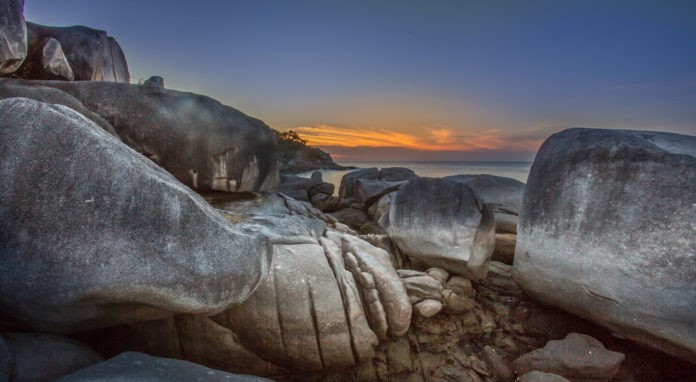
A key part of sustainability lies in respect for nature. The novel coronavirus pandemic has had a terrible impact on the health and safety of people all over the world, yet, as many world leaders have pointed out, it has had a positive impact on the environment. Satellite images of air pollution above China showed temporary clearing as the country went into lockdown. The waters of Venice have returned to their clear, blue, natural states without the devastation of unsustainable tourism. The beauties of nature rely on the respect of those of us who enjoy them and rely on them.
Bjorn T. Burchard values the beauty of nature above any manufactured luxury. Despite the efforts of years of design and planning for his resort, he still holds the natural beauty of Boulder Island to be greater than anything he could ever dream up: “We are a three-star resort in a seven-star location.” In preservation of his seven-star island, Bjorn has developed a welcome package of sustainable and environmentally friendly self-care products (sunscreen, toothpaste tabs, bamboo toothbrushes, etc…), instituted experience wide rules of conduct that protect his paradise, and sought professional organizations to run studies on the archipelago’s ecosystem, including the impact of his resort.
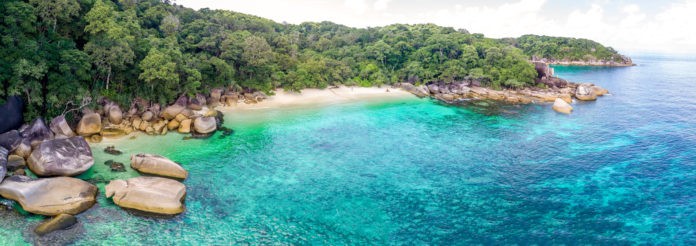
I do not suggest that every developer or hotel company set up eco resorts: the tourists of the world have varied tastes and bamboo huts will not satisfy everyone. It is my hope instead to call to action those that regulate the natural resources of land and beauty, those that build accommodations and experiences, and those who travel to enjoy the wonders of the world.
To all of you, to every individual:
Notice your impact; do not ignore it.
Make the positive, sustainable choice; do not forgo it.
Recognize your power to change the world; do not deny it.
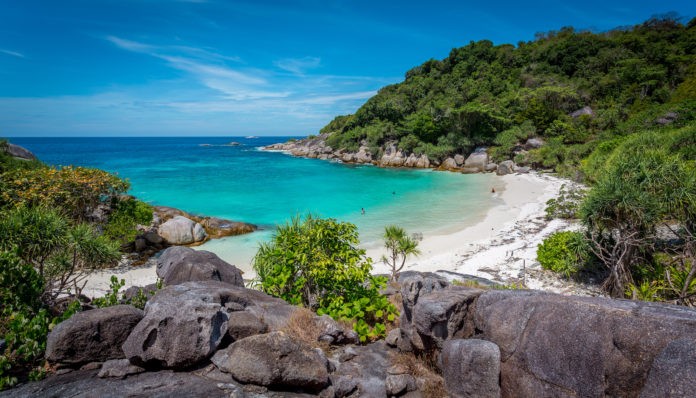
We look to government ministries and departments to take the responsibility to plan and ensure sustainable tourism development in Myanmar and the Mergui Archipelago, but each one of us, stakeholders, private organisations and travellers have a responsibility to also do our part. We must operate responsible businesses and promote sustainability. We must be responsible travellers, avoiding and discouraging those tour operators and hotels that squander and ruin the wonderful world around us.
Source for untwo: www.unwto.org/sustainable-development
Boulder Bay Eco Resort page: boulderasia.com



